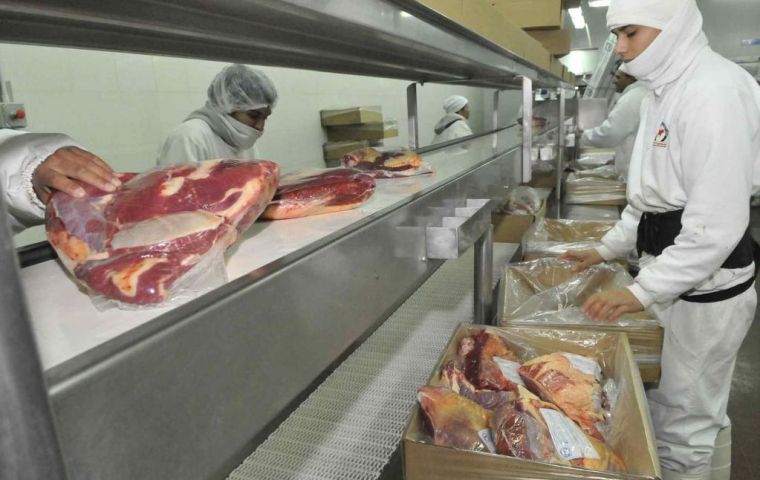MercoPress. South Atlantic News Agency
Argentine officials rule out banning beef exports or setting quotas
 No export quotas but domestic supply needs to be guaranteed at popular prices
No export quotas but domestic supply needs to be guaranteed at popular prices Argentine beef industry sources quoted by local media Sunday announced the administration of President Alberto Fernández was not planning to ban beef exports or set up quotas, after announcing last week a series of measures to detect under-invoicing.
“There will be no restrictions or quotas, but registries of exporters and the measures are not as restrictive as originally thought,” acknowledged a source who closely follows the negotiations. The Casa Rosada seeks to control the price of food and in recent days presented a package of measures that also includes poultry production, through the purchase of corn with coverage, to sustain the price of chicken at current values.
Domestic Trade Secretary Paula Español had fueled those rumours during negotiations to guarantee the Popular Prices agreement for beef cuts. But if any exporting company partially or totally fails to comply with the supply agreements, the State will articulate a series of mechanisms to correct this situation, although it does not amount to becoming a quota system.
Carlos Riusech, CEO of Frigorífico Gorina, foresaw “an improvement in the consumption system, and will be implemented as of January next year.” Regarding the price agreement, he insisted the industry is carrying out a plan, which is based on the delivery of merchandise with suggested prices.
The Popular Prices agreement, in force since February, ended on March 31 and was extended for the entire month of April, while seeking to negotiate the new volumes that will be released to the market, the number of cuts and the sale price to the public. The current agreement includes 6,000 tons per month, which are divided into ten products and are sold in supermarkets and the Central Market. The third section that the industry seeks to negotiate is a reduction in export duties, which are 9%.




Top Comments
Disclaimer & comment rulesCommenting for this story is now closed.
If you have a Facebook account, become a fan and comment on our Facebook Page!